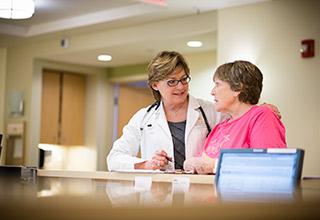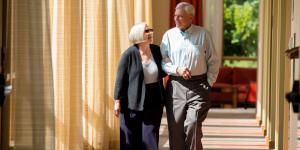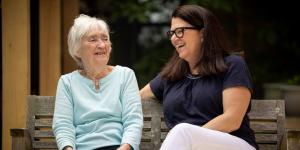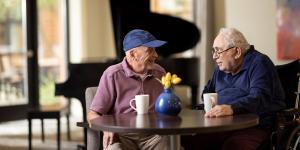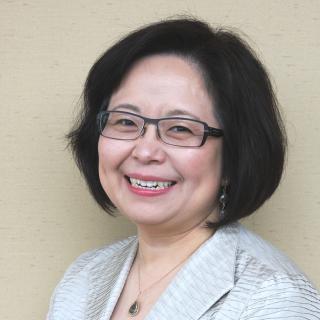Understanding Fatigue in Older Adults
Why it's important to recognize when fatigue is more than just feeling tired.
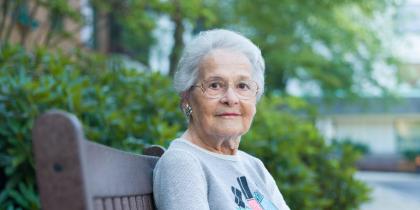
Who doesn’t feel tired from time to time? Everyday stress, lack of sleep, or poor lifestyle choices can contribute to feeling downright exhausted at any stage in life.
As Chief Medical Officer at Hebrew SeniorLife and Hebrew Rehabilitation Center, I get asked all the time by my patients whether their lack of energy is something to be concerned about and what can be done to put the pep back in their step. As we age, it’s important to sort out what is normal fatigue that can be addressed with changes in diet, exercise, or habits, from signs of serious illness that requires medical attention.
What is Fatigue?
Fatigue can be very subjective. Everyone copes with the onslaught of daily life in different ways. The causes of fatigue are as varied as the individuals who report feeling it. Physical and emotional conditions, lifestyle, and stress brought on by an unlimited host of reasons—all contribute. We’ve all experienced the desire to just crawl into bed and pull the covers over our head when life becomes overwhelming.
The National Institutes of Health defines fatigue as “a feeling of weariness, tiredness, or lack of energy, which is different from drowsiness—a feeling of needing sleep.” According to NIH, a person’s symptoms must meet three criteria to be defined as fatigue:
- an inability to initiate a normal activity due to perceived generalized weakness;
- a reduced capacity to maintain activity; and
- difficulty with concentration, memory, and emotional stability.
What Causes Fatigue in Seniors?
With age, older adults face certain challenges that may increase their risk for developing fatigue. They may be experiencing changing or diminishing physical function, cognition, and emotional state (often due to social isolation). Research shows that fatigue in older adults can be a predictor of mortality, and for that reason needs to be taken seriously, and not just chalked up as part of normal aging.
The following are some common causes of fatigue in older adults:
Mental or emotional issues
Older adults often find themselves feeling stress from financial strains, health issues, or anxiety about what the future holds in store for them, which can cause fatigue.
Sometimes with retirement, boredom sets in or a feeling that life no longer holds purpose, which can lead to depression. Many older people experience grief with loss of partners or friends, or a move to a new environment from a home that held cherished memories. Both depression and grief can trigger fatigue.
Musculoskeletal weakness
The process of aging can lead to loss of skeletal and muscle quantity and quality, which may cause weakness and disability among older adults. This in turn may make tasks that younger adults take for granted, from getting dressed in the morning to household chores throughout the day, harder to accomplish and fuels fatigue.
It’s important to note that sarcopenia (muscle loss) and various bone conditions like osteoporosis can be treated with diet, exercise, and medication. Be sure to discuss treatment with your doctor.
Medical conditions
Older patients often fail to report fatigue to their physicians because they think it’s just “old age.” It’s critically important to root out underlying illness that requires medical attention. Fatigue can be a warning sign for serious conditions, including:
- Infections
- Chronic diseases like diabetes, heart disease, kidney disease, liver disease, thyroid disease, and chronic obstructive pulmonary disease (COPD)
- Cancer
- Depression
- Untreated pain and diseases like fibromyalgia
- Anemia
- Sleep apnea and other sleep disorders
- Treatments for disease can cause fatigue, including medications, chemotherapy and radiation, and recovery from surgery.
What You Can Do to Boost Your Energy
There are steps you can take to boost your energy at any age. Here are some suggestions:
- Keep a diary. Track your energy patterns throughout the day. You may be able to identify what might be causing your fatigue, and when you need to rest.
- Exercise regularly. Exercise is beneficial at any age. Consult with your care provider(s) to develop a program that is safe and works for you.
- Learn about “sleep hygiene”: There are many research-based strategies that can promote a healthy sleep cycle. Learn more by reading this blog.
- If you smoke – stop!
- Find ways to stay socially connected. Look for resources in your community such as senior councils on aging that offer programs to keep older people active and engaged. From book clubs, to exercise and current event discussion groups, there’s usually something for everyone.
- Don’t go through it alone. If you’re feeling overwhelmed, ask for help. Talk to family and friends or seek out resources in your community.
- Seek medical treatment. If you’re feeling unusually tired don’t just blame it on old age. Let your doctor know how you feel to rule out any serious illness and learn strategies for increasing your energy.
Staying Connected as You Grow Older
Don’t believe the myth that growing old has to mean retiring from life! Every day new research is showing us that many conditions associated with age can be managed and, in some cases even reversed. With age, life’s journey still holds the opportunity for growth and enjoyment.
Hebrew SeniorLife offers many opportunities for older adults to find purpose, meaning, and connection, from volunteer opportunities to supervised exercise programs at our Boston location. Moving to a senior retirement community, like Orchard Cove in Canton, NewBridge on the Charles in Dedham, or Center Communities of Brookline, is a way to ensure that you’ll always be surrounded by friends and will have easy access to a rich variety of programming. Contact us today to learn about all we can offer you.
Learn More
Senior Living
Hebrew SeniorLife offers a variety of senior living options, including independent living, assisted living, and enhanced living. There are options for every lifestyle and budget.
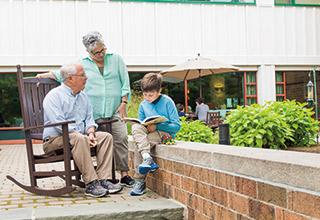
The Best Health Care for Seniors
Hebrew SeniorLife is the only senior health care organization affiliated with Harvard Medical School. Members of our caregiving teams specialize in providing geriatric care, and they do so with care and compassion.
